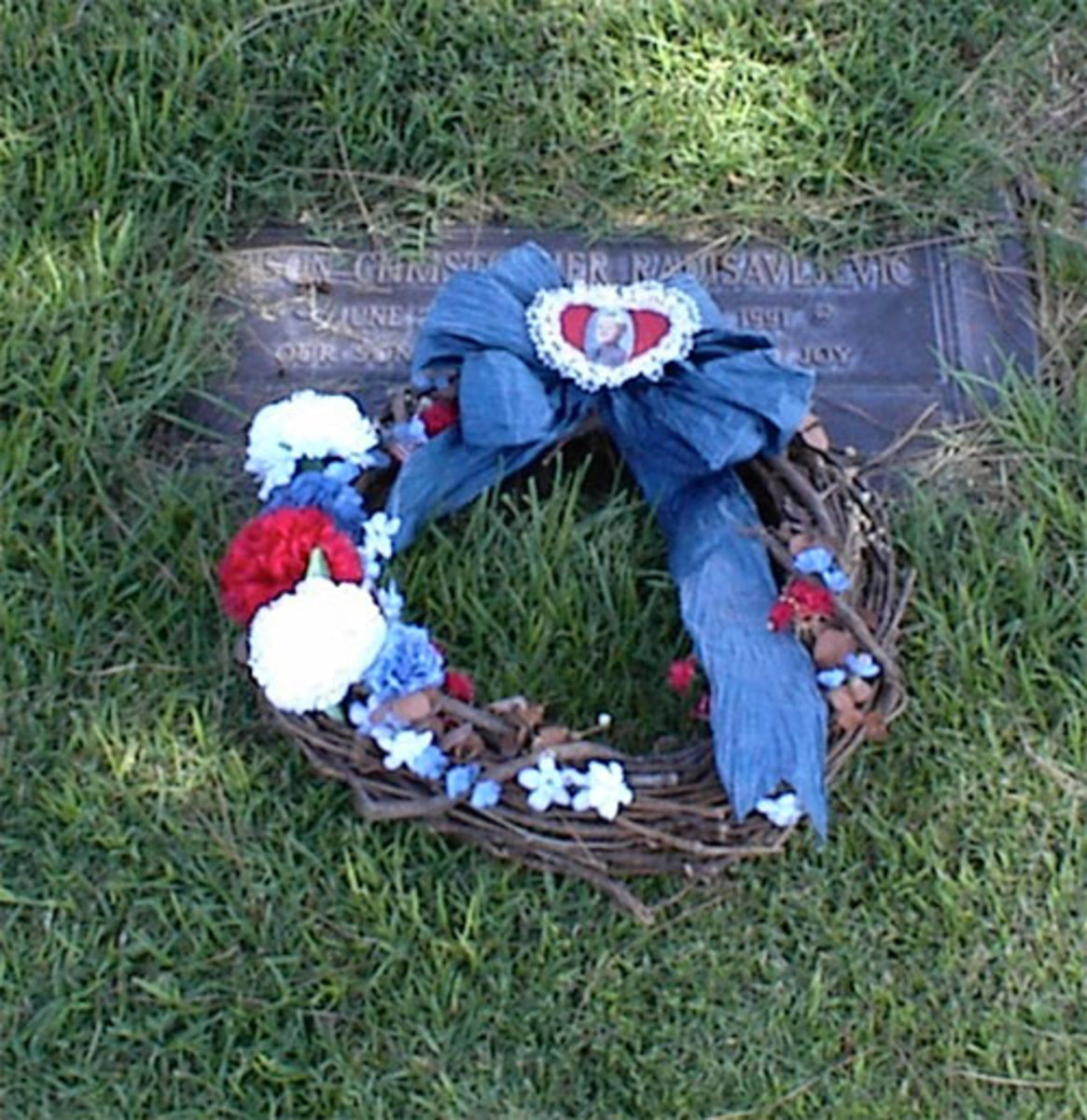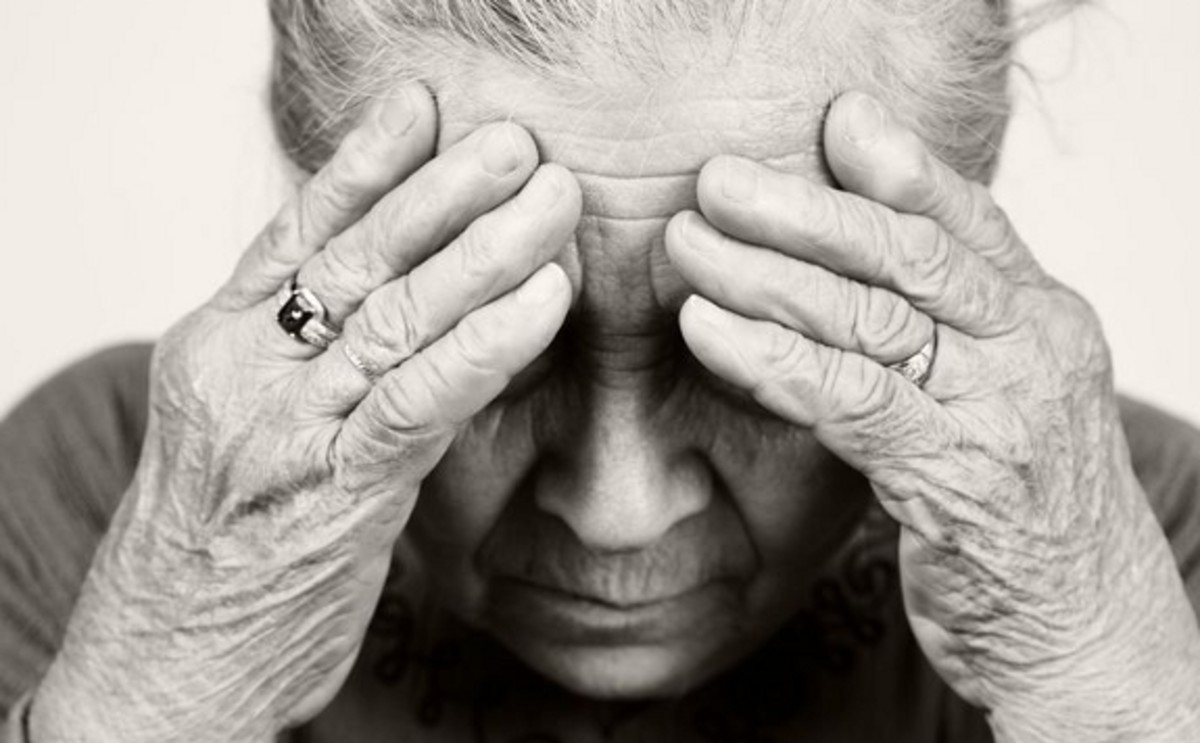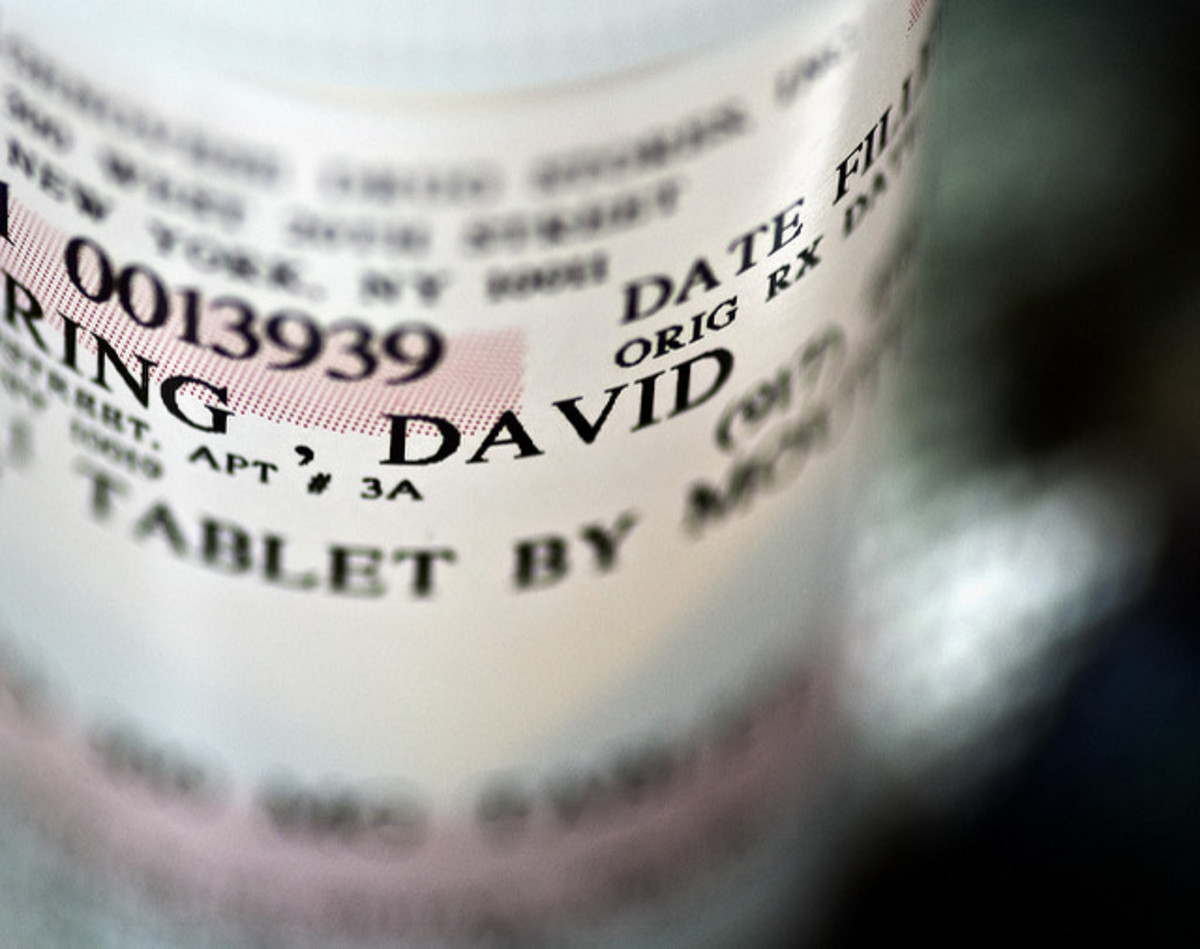People Who Have Died on the Liverpool Care Pathway
The Liverpool Care Pathway is a hospital management guide to death and dying for the elderly.
It is a written care plan for the dying that has been drawn up by professionals and has to be followed to the letter.
Unfortunately, it does not target only dying people, but it does ensure death is the end result.
This has meant the swift deaths of thousands of elderly people in the UK since its introduction in 1996.
People who just happened to have taken a turn for the worse, and who ended up in an NHS hospital from their home or residential care home.
People who may have had a few more precious months or even years to live, until their untimely end.
While it almost certain that the majority of those deaths would have happened anyway, some old people do seem to have been euthanized, and it is these cases we will look at here.
- Doctors reported to police over use of controversial death pathway
A son has reported doctors to police after discovering they had put his elderly mother on the controversial death pathway without telling him, it has emerged.
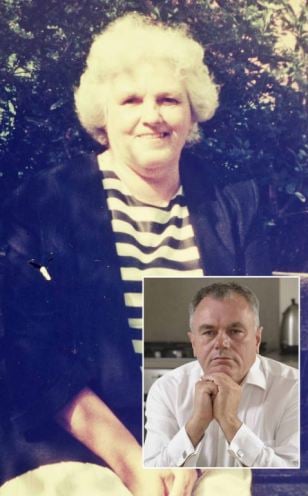
Jean Tulloch, 83
Jean Tulloch, aged 83, was admitted to the Western General Hospital in Edinburgh, Scotland, from her care home in the city, suffering from a kidney and urinary tract infection.
Within a week, the infections were cleared up, but the hospital contacted her son, Peter, who lived 400 miles away in London, to inform him that she was dying.
He immediately travelled up to Edinburgh to visit his mother, only to find far from death, being awake, conscious, smiling and trying to talk but with difficulty because she had sores in her mouth. She did, however, make hand gestures to communicate.
The doctors advised Mr Tulloch to go home and that he would be called if his mother deteriorated.
He decided to stay nearby, and paid a surprise visit the next day, only to find that his mother's IV drip of life sustaining fluids had been removed and that her mouth was dry as well as painful.
She was distressed, having been put in a side ward on her own, and had no means of sustenance. She had not been sedated and so was hungry and thirsty.
Medical notes revealed that Mrs Tulloch had been placed on the Liverpool Care Pathway (LCP) the day before, without the knowledge or consent of her son.
He strongly believes the hospital tried to kill his mother, safe in the knowledge that he had returned to England and so would not have known about it.
Fluids were re-instated to Mrs Tulloch, but she died 3 weeks later in the same hospital, a death which her son feels the hospital were partly responsible for, having deprived her of fluids for 24 hours.
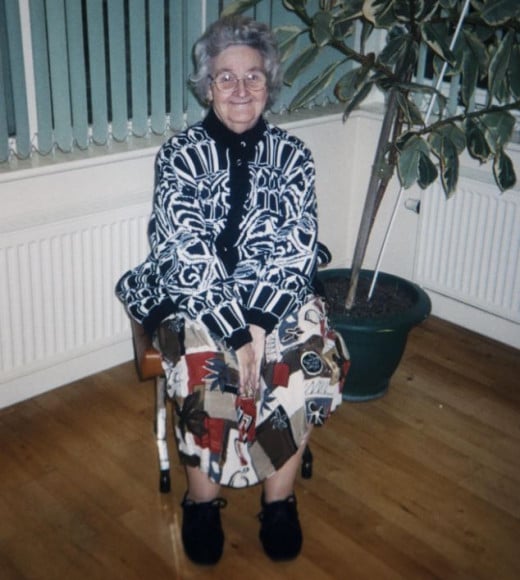
- A lonely death on the 'care' pathway: MPs demand action after another patient is chosen to die witho
Olive Goom (pictured), 85, passed away with no one by her side after medics neglected to consult with her family about her treatment at Chelsea and Westminster Hospital.
Olive Goom, 85
Olive Goom, aged 85, died alone with no-one at her bedside at the Chelsea and Westminster Hospital in London.
Her family were never informed that she had been put on the LCP.
Her niece had phoned the hospital to enquire how she was, and had been advised that her aunt was comfortable and that there was no need to visit.
This is despite the fact that she had already been put on the plan at this point, and death is usually expected with 33 hours, mainly due to the lack of sustenance.
Her niece, Marion Hebbourne, 68, made several visits entailing a 70 mile round trip from her home in High Wycombe to see her aunt, who had been admitted after falling and breaking her arm, and later developing a urinary tract infection.
Her final visit was to the mortuary, not even having been informed of Miss Goom's death until she arrived for a normal visit.
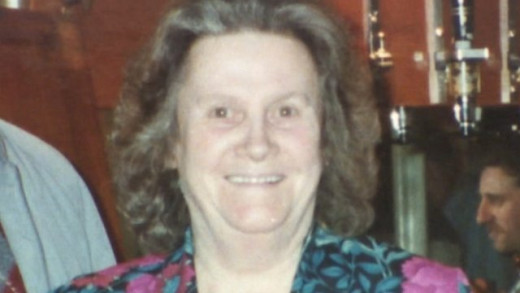
- Family 'not told' grandmother was put on Liverpool Care Pathway
Doctors put a dying grandmother on a controversial 'death pathway' without telling her family, they are claiming.
Mary Cooper, 79
Diabetic Mary Cooper, aged 79, was admitted to the Queen Elizabeth Hospital in King's Lynn, Norfolk.
She had suffered from appetite loss caused by antibiotics she was prescribed for a foot infection.
This in turn had meant she was not eating properly, which caused her blood sugar to drop bringing about a hypoglycaemic attack.
Her condition was stabilized in hospital over a five week period, after which time her health declined.
One of her daughters maintained a bedside vigil throughout this period, so sick was her mother.
Doctors did discuss the possibility of putting her onto the Liverpool Care Pathway, but the process was never fully explained to them.
Her husband says the process was never explained to him, and that he would not have agreed had he known.
On being told that Mrs Cooper was dying (after the LCP had been started), her husband offered to take her home, to die in her own home surrounded by family, and was told he couldn't.
When the reason why he couldn't do that was further explained, that his wife was on the LCP, he asked for it to be stopped and this request was refused.
Mary Cooper died hours later in hospital surrounded by her family.

- My diary of mum's awful death on the Liverpool Care Pathway: Nurse's heart-rending account of how do
When her 85-year-old mother Maureen was admitted to Addenbrooke's Hospital in Cambridge and put on the controversial plan without her knowledge Carole Jones documented her treatment in the days that followed.

Maureen Rodd, 85
Maureen Rodd, aged 85, was admitted to Addenbrooke’s Hospital in Cambridge from her care home, after suffering a massive right-sided stroke.
According to her daughter, 64 year old nurse Carole Jones, Mrs Rodd had been in relatively good health previously, but with signs of early dementia. Her mobility had also been deteriorating in the previous few months.
This, and the fact that she had now suffered a stroke, seemed to be enough for the senior registrar to decide that her quality of life would not be good, and all treatment was withdrawn after just 2 days.
Carole was only told of this the day after. Even as a nurse, she had not heard of the Liverpool Care Pathway.
A doctor explained to her that her mother would probably die in 3-4 days after the withdrawal of fluids.
The LCP was started on the Wednesday, but it was 5 days later, on the following Monday evening before a diamorphine pump was started.
Maureen, meanwhile, was conscious part of the time, even to the extent of telling the ward sister on the Monday not to wash her hair, as her normal hair-washing day was Wednesday (it was).
I can only assume her daughter was in shock when she apparently meekly accepted what was happening. She was even told by the ward nurses not to put a damp cloth to her mother's mouth in case she sucked some moisture off it, as this would prolong her life.
Maureen took 12 days to die.
This case is the most shocking of all so far, as she was obviously nowhere near death when the LCP was started.
A stroke is not the end for many people, and given time she may have recovered enough to have some sort of life.
Doctors are not God and shouldn't play with the lives of others, even if they did need the bed.

Patients on the Liverpool Care Pathway are supposed to be 2 to 3 days away from a natural death before this plan is commenced.
They should display two of the following:
- Being bedbound
- Semi-comatose
- Only able to take sips of fluids
- No longer able to take tablets
This effectively means that someone who cannot take tablets orally but is able to sip fluids, but is otherwise alert and can get up (mobile) can be put on the plan.
The wording of the care plan makes it clear that fluids by tube, either naso-gastric or venous, should be stopped. There is no mention of stopping oral fluids, which should be offered if the patient is awake.
Some hospitals actively discourage sips of water by mouth, and this is wrong, and unnecessarily cruel.
Care TEAMS are supposed to decide who gets put on the LCP, not individual doctors.
It would seem that some doctors are taking it upon themselves, and nurses are saying nothing about it.
Families are supposed to be part of the decision-making process, but are frequently the last to know.
Top doctor speaks out against the Liverpool Care Pathway
In a speech given at the Royal Society of Medicine in London, Professor Patrick Pullicino said that the Liverpool Care Pathway had become the Liverpool Death Pathway.
The Professor, a consultant neurologist for East Kent Hospitals and Professor of Clinical Neurosciences at the University of Kent, said that too often doctors are using the pathway to kill off elderly patients for either economic factors, or because they are 'difficult to manage'.
A massive 29% of all NHS deaths in the UK per annum are of people on the LCP. This translates to 130,000 people.
Professor Pullicino states that it is impossible to say if someone is 2 or 3 days away from death, but once put on the LCP, they are!
He says it takes an average of 33 hours for someone on the Pathway to die.
He cited a case in his own hospital where he returned from a weekend off to find that a junior relief doctor had put one of his elderly patients on the Pathway.
The patient was a 71 year old man who he had been treating for pneumonia and epilepsy.
He immediately ordered the morphine syringe be removed, and normal care re-started.
The man recovered, went home and lived for a further 18 months, only dying when admitted to another hospital where the LCP was commenced a second time, this time killing him within 4 hours.
The Professor is not alone in voicing his reservations.
Three years ago Peter Millard, emeritus professor of geriatrics at the University of London, and Dr Peter Hargreaves, palliative care consultant at St Luke’s cancer centre in Guildford, Surrey, warned of the possibility of ‘backdoor euthanasia’ being practised to detriment of vulnerable patients.
Meanwhile, other health professionals are full of praise for the Liverpool Care Pathway, which was developed in the Liverpool area of England in the late 1990s and recommended to hospitals in 2004 by a body called the National Institute for Health and Clinical Excellence (NICE).
When used correctly, it ensures dying patients a smooth passage from this world to the next.
Sometimes patients even recover while on it, and they are then supposed to be taken off it and normal treatment resumed.
This didn't happen to poor Maureen Rodd, who died hungry and thirsty, if not alone. Nor to Olive Goom, Jean Tulloch or Mary Cooper and goodness knows who else.



